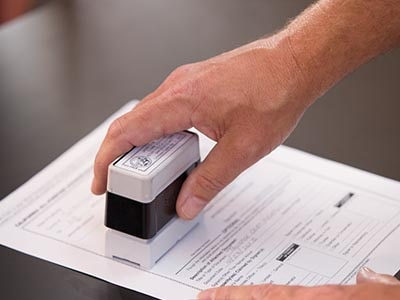Debunking Notarial Work: Simplifying the Function and Relevance of Notaries
Their function, typically shrouded in mystery for many, lugs substantial weight in making certain the legitimacy and honesty of vital papers. By deciphering the intricacies bordering notarial methods and shedding light on the value of their acts, a clearer understanding emerges of the essential function notaries play in upholding the textile of contractual and lawful contracts.
The History of Notarial Job
How did notarial job progress gradually to become an indispensable part of legal and organization transactions? The history of notarial job dates back to old human beings, where scribes played a crucial duty in tape-recording essential information and confirming files. As cultures proceeded, the need for an extra formalized system to ensure the credibility of agreements developed. This brought about the advancement of notaries, people appointed by the state to serve as neutral witnesses in legal matters.
Throughout the Middle Ages, notaries gained importance in Europe, with their functions broadening to consist of composing legal records, certifying signatures, and protecting records. The increase of global profession better emphasized the importance of notarial operate in confirming contracts and contracts across borders.
In the modern period, notaries remain to play an important role in legal and company transactions by confirming identities, verifying the authenticity of documents, and avoiding scams. Their duty in licensing the credibility of contracts adds a layer of safety and security and depend on to the ever-evolving landscape of business and legislation.

Tasks and Obligations of Notaries
Notaries play a crucial duty in confirming the credibility of files and the identification of signatures. One of their main duties is to witness the signing of crucial documents, such as deeds, wills, and contracts, to make sure that all events are entering into contracts purposefully and willingly.
They accredit copies of original files, providing assurance to institutions that the duplicates are real reproductions of the originals. Generally, the tasks and obligations of notaries are vital in securing the integrity and legality of numerous documents and transactions - Conveyancer.
Notarial Certificates and Signatures
Exhibiting thorough interest to detail, notarial certifications and trademarks function as important components in confirming the authenticity of legal records. Notarial certificates generally contain critical info such as the date of registration, the names of the notaries, a summary of the paper, and the notary's official seal. These certifications offer a clear document of the notarial act, making certain that the file can be conveniently determined and traced back to the notary that oversaw the procedure.
Signatures play an essential role in notarial job, as they represent the contract and approval of the events involved. Notaries thoroughly witness the signing of papers to confirm the identity of the notaries and validate that they are signing of their very own free will. By fastening their official seal and signature to the record, notaries certify that the needed treatments have been complied with which the document is valid and enforceable.
Basically, notarial certificates and trademarks are the Notary characteristic of authenticity in legal purchases, providing assurance to all celebrations entailed that the documents are genuine and binding.
Relevance of Notarial Acts

Registration Process Explained
Discussing the registration process provides clarity on the necessary steps entailed in validating legal files. The registration procedure generally starts with the individual presenting the file to a notary public. The notary after that confirms the signer's identity through appropriate recognition techniques. As soon as the identity is confirmed, the notary makes sure that the individual signing the paper does so voluntarily and with no threat.

Verdict

Notarial certificates commonly contain essential info such as the day of registration, the names of the signatures, a summary of the record, and the notary's official seal. These certificates provide a clear record of the notarial act, making sure that the paper can be quickly recognized and mapped back to the notary that looked after the procedure.
By fastening their main seal and trademark to the record, notaries license that the required treatments have actually been adhered to and that the paper is legitimate and enforceable.
By validating the identification of the signatures, verifying their desire to get in into the contract, and certifying the date and area of the finalizing, notaries play an important function in supporting the validity of legal records.After the record is authorized, the notary will affix their main seal or stamp onto the record.